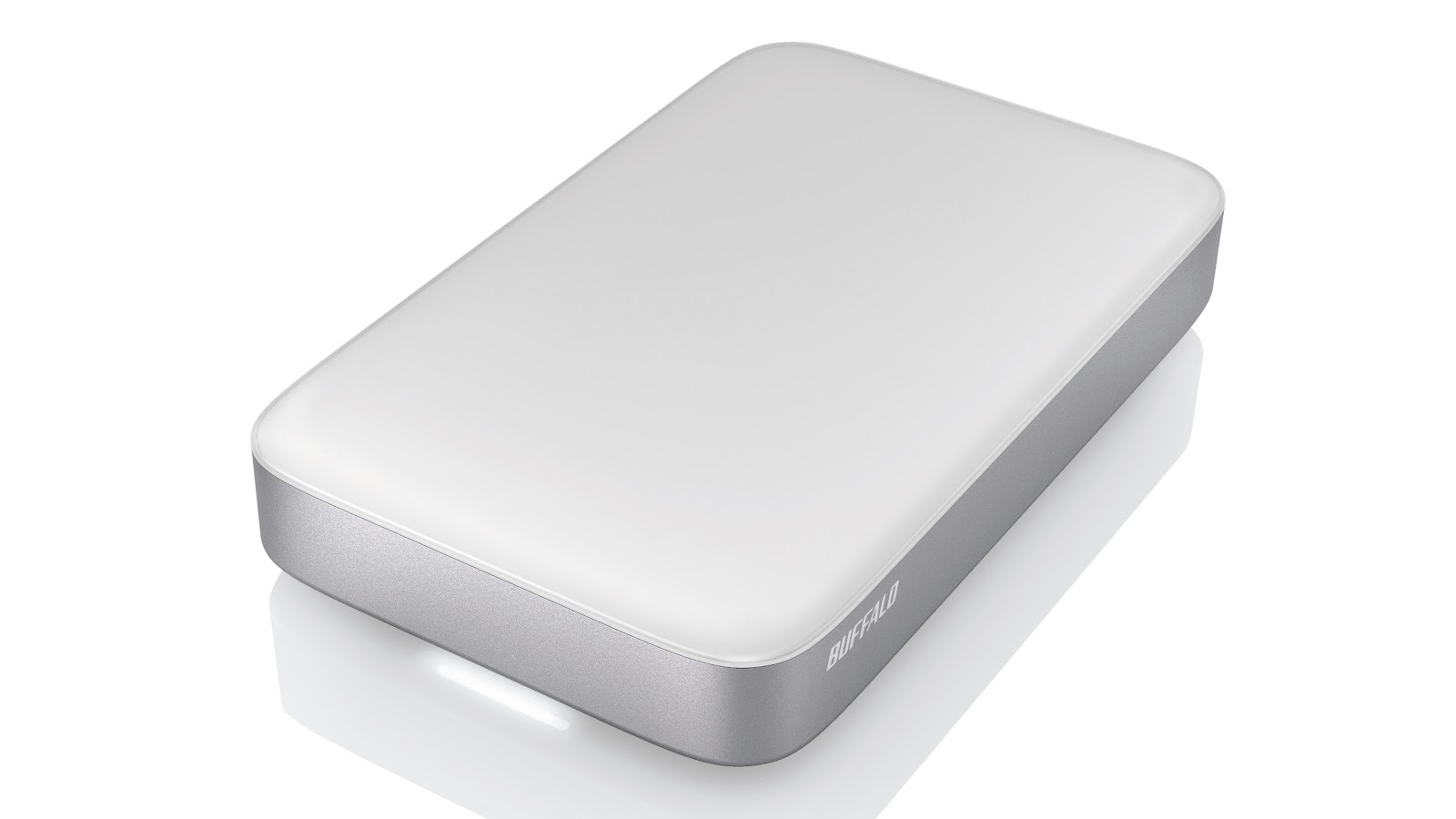TechRadar Verdict
Pros
- +
Low price compared to other Thunderbolt drives
- +
Reasonably fast
- +
Great design
- +
Time Machine compatibility
Cons
- -
Standard hard drive limits speed
- -
No second Thunderbolt port
Why you can trust TechRadar
The Buffalo MiniStation Thunderbolt is another entry in the growing list of devices which use the newish Thunderbolt port. If you've got a recent MacBook Air then you'll have Thunderbolt connectivity, but if you have a PC then things are a bit trickier.
Most Windows-based laptops don't include Thunderbolt, and if you have a desktop PC you're going to need a motherboard such as the Intel DZ77RE-75K or the Gigabyte Z77X-UP5TH to add the functionality, which may necessitate an upgrade that will be both costly and time consuming.
The benefits of the Thunderbolt port must be worth it then, especially for PC users.
With the Buffalo MiniStation Thunderbolt HD-PATU3 we've got a sturdy and portable hard drive that's attractively designed. The white finish hints at the fact that this is a device primarily aimed at Mac users, and the Time Machine compatibility further confirms that.
It comes formatted for Macs, so if you're on a PC you'll need to reformat the drive, which doesn't take too much time.
The Buffalo MiniStation Thunderbolt also comes with a USB 3.0 connection, so even if you're on a computer that doesn't have Thunderbolt, you'll still see the benefit of a faster connection.
It only comes with one Thunderbolt port, however, so if you're daisy chaining Thunderbolt devices this will have to sit at the end. Maybe not a big deal, but some other Thunderbolt drives such as the G-Technology G-Raid with Thunderbolt come with two ports, giving you more flexibility with where you place the drive in the daisy chain setup. The extra port does come at a price, however, as the G-Technology is a lot more expensive than the Buffalo's rather respectable price.
The Buffalo MiniStation Thunderbolt also comes with a USB 3.0 and Thunderbolt cable included, which is a nice touch, since we've seen Thunderbolt devices that don't come with the cable. This makes the Buffalo MiniStation Thunderbolt much better value for money.
Of course, what really matters is the speed in which the Buffalo MiniStation Thunderbolt transfers data. In our benchmark tests it scored 110.2 MB/s read and 96MB/s write, which is certainly fast, but not actually that much faster than a cheaper USB 3.0 drive.
In our real world tests we sent a 1.36GB file in just 36 seconds. It's impressive, but still doesn't blow USB 3.0 out of the water, despite the Thunderbolt drive's potential.
This is mainly due to the fact that the Buffalo MiniStation Thunderbolt contains a standard mechanical hard drive, so no matter how fast the connection is, it's still being held back by the spinning drive.
Thunderbolt drives that come with SSDs have no such bottleneck, and you get much faster speeds. For example, the Elgato Thunderbolt SSD 120GB is a lot more expensive, and has a smaller capacity, but it far faster.
Verdict
Overall the Buffalo MiniStation Thunderbolt is a decent Thunderbolt drive that performs well, but doesn't do enough to justify the upgrade if you're a PC user, thanks to the bottleneck created by using a standard hard drive.
However, it is still a lot cheaper than an SSD Thunderbolt drive, and comes with either 500GB (£150/US$209.99) or 1TB (£179.99/US$269.99) capacities - something you won't see in SSD drives anytime soon.
For Mac users, this is a very capable Thunderbolt drive, with good backup features, but again you may be better off going for a cheaper USB 3.0 drive instead.

Matt is TechRadar's Managing Editor for Core Tech, looking after computing and mobile technology. Having written for a number of publications such as PC Plus, PC Format, T3 and Linux Format, there's no aspect of technology that Matt isn't passionate about, especially computing and PC gaming. He’s personally reviewed and used most of the laptops in our best laptops guide - and since joining TechRadar in 2014, he's reviewed over 250 laptops and computing accessories personally.
